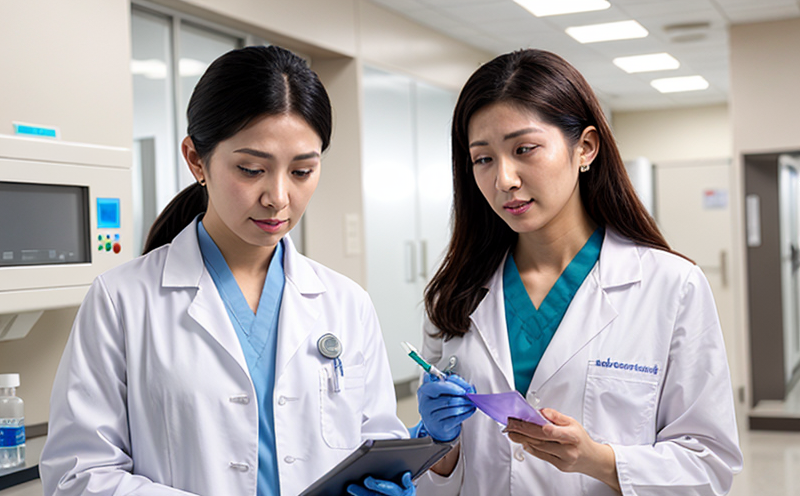Container Closure Integrity Testing for Biosimilars
In today’s rapidly evolving pharmaceutical landscape, ensuring the integrity of container closures is paramount, especially when dealing with biopharmaceuticals and biosimilars. Container closure systems (CCS) are critical to maintaining product stability, protecting against contamination, and ensuring consistent quality throughout the entire lifecycle of a drug product.
Biosimilars, being highly similar versions of already approved reference biologics, present unique challenges in terms of container compatibility and integrity. The testing methods and standards for biosimilar container closure systems are rigorous due to their role in preserving the therapeutic efficacy of these complex molecules.
The process involves multiple steps including visual inspection, physical verification, and advanced analytical techniques such as helium leak detection (HLTD), pressure decay (PD), and mass spectrometry. These tests ensure that even the smallest breach in the container closure does not compromise the integrity of the product.
Our laboratory employs state-of-the-art technology and adheres to international standards like ISO 11607, ASTM F2095, EN ISO 11607:2008, and IEC 60472. This ensures that we deliver accurate and reliable test results which are essential for regulatory compliance.
Our team of experts works closely with clients to understand their specific needs and develop tailored testing protocols. From initial consultation through final reporting, we provide comprehensive support throughout the entire process. Our commitment is to ensure that every container closure system meets or exceeds the required standards.
The importance of this testing cannot be overstated; a compromised CCS can lead to significant quality issues such as loss of product efficacy, increased risk of microbial contamination, and potential safety hazards for patients. Therefore, rigorous testing at critical stages is crucial to safeguard both the integrity of the product and patient health.
Our laboratory has extensive experience in conducting these tests on various types of containers including vials, syringes, infusion bags, and other delivery systems used in biopharmaceutical manufacturing processes. We use advanced instrumentation and methodologies that provide precise measurements and reliable data.
We also offer consultancy services to help companies design more effective container closure systems which are better suited for the specific requirements of biosimilars. By leveraging our expertise, clients can optimize their production processes leading to improved product quality and enhanced patient safety.
Benefits
- Enhanced Product Quality: Ensures that the container closure system maintains the integrity of the biopharmaceutical throughout its shelf life.
- Regulatory Compliance: Adherence to stringent international standards helps in meeting regulatory requirements and gaining market approval.
- Patient Safety: Prevents contamination risks that could lead to adverse reactions or reduced efficacy of the medication.
- Cost Efficiency: Early detection of potential issues through thorough testing can save substantial costs associated with rejections during manufacturing and post-market recalls.
- Improved Process Optimizations: By identifying weak points in the container closure system, manufacturers can implement necessary improvements resulting in more efficient production lines.
Industry Applications
The application of container closure integrity testing extends beyond just biosimilars into other areas within pharmaceutical manufacturing. It plays a vital role in ensuring the quality and safety of various products such as vaccines, monoclonal antibodies, therapeutic proteins, and gene therapies.
By maintaining robust container closure systems, pharma companies can adhere to stringent regulations set forth by organizations like the FDA, EMA, and WHO. This not only enhances public trust but also strengthens brand reputation which is crucial in highly competitive markets.
Use Cases and Application Examples
- Vaccine Manufacturing: Ensuring that vaccines remain stable inside their containers even under extreme conditions is critical. Our tests help manufacturers maintain the highest quality standards.
- MonoClonal Antibodies: These drugs require stringent protection from external elements to preserve their potency and effectiveness.
- Therapeutic Proteins: Given their large molecular structure, these proteins need robust containers that can withstand various stressors without compromising the product integrity.
- Gene Therapies: These advanced treatments demand meticulous attention to detail when it comes to maintaining container closure integrity to ensure they remain effective until administration.





